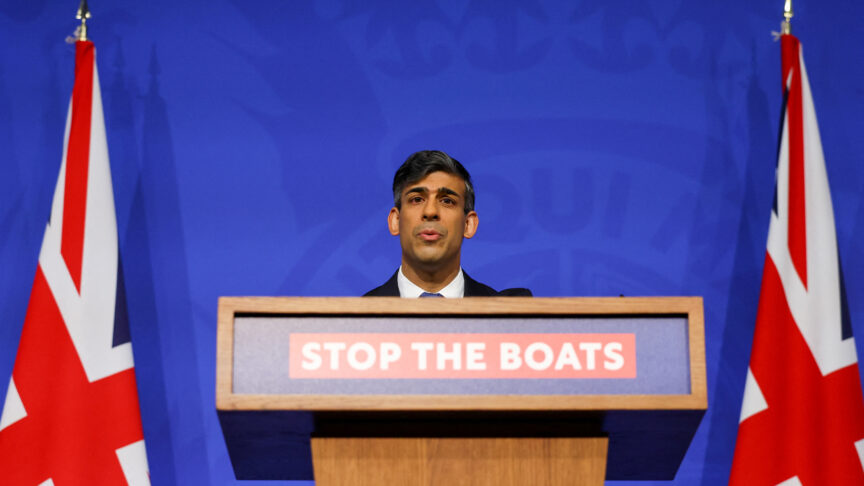Tackling the new consensus on migration
For ambitious and principled EU leaders, here is how to re-set the debate on migration at the European Council.
'Relocation is dead, long live relocation' seemed to be Commissioner Avramopoulos’ message as he announced in September the closure of the EU's enforced burden sharing scheme. He insisted that although mandatory relocation would cease to exist (having helped less than 30,000 of the 160,000 refugees intended,) EU states would continue to co-operate on a voluntary basis.
As if to reinforce this point, migration is top of the agenda for the European Council meeting next week. There are three sub-items for discussion: taking stock of measures taken thus far to control illegal migration flows; a debate on what additional measures are needed to support frontline member states; and a call for progress for reform of the reform of the common European asylum system (the so-called Dublin rules).
This sounds like a well-meaning discussion until you remind yourself of the political context. Austria, Germany, Greece, Hungary, Sweden, and most recently Italy have all come close to political crisis because of spikes in immigration in the past two years. And because intra-EU support has been so limited in each case, member states have lost faith in the possibility of a common EU approach. Moreover many have become convinced that, if they have to operate on a unilateral basis, closed borders are easier to manage.
It didn’t have to be this way. As Josef Janning and I argued in Bear any Burden last year, three different categories of EU states emerged in autumn 2015 on how the migration crisis should be tackled: there was an Austro-Balkan group who argued for European states to temporarily close their national borders in a coordinated manner; a group striving for EU burden sharing around a welcoming approach (this included Germany, the then Dutch Presidency, and Greece); and a third group of very different national approaches.
But two years have gone by, and although EU leaders have not all forgotten the macroeconomic and cultural benefits of a diverse population, there are very few left around the Council table who believe they can win the domestic argument for a liberal migration policy. As a result we have seen a growing convergence around the idea of preventing migrants (or at least those who do not meet the entry criteria) from even arriving at the EU’s border. Witness the EU-Turkey deal, the Italy-Libya deal, or Macron’s proposal to set up processing centres in African transit countries.
With this in mind, ‘measures to control illegal migration flows’ sounds like a euphemism for hardened, outsourced borders; ‘support for frontline member states’ rings hollow, and ‘reform of the common European asylum system’ sounds like a search for loopholes.
Re-setting the debate
Can this picture be turned around? And what does the EU project now stand for if a humane response to those migrating in search of a better life is not something we can aspire to? If there are EU leaders at the Council table next week asking themselves these questions, then here are three pointers for starting to get a different migration strategy off the ground.
First, identify who your allies are and collaborate to change the tone of discussion at the Council table. In ‘ Bear any Burden’ we identified the kernel of a coalition in favour of a managed but open migration policy including Germany, the Netherlands, Sweden, and Greece. And though Angela Merkel has been weakened in the recent German elections, pan European support for a welcoming policy would be far more politically sustainable than Germany continuing to go it alone.
Second, learn from each other. This year’s elections in France and Germany have shown what a tough battle EU governments face in defending an open, internationalist attitude. Italy’s elections next year look set to be no different. EU states need, therefore, to develop a positive narrative together on this vision, and learn from each others’ experiences if they want to defeat the voices agitating for closed borders. Reaffirming what Europe is for as it manages migration could move the EU away from a defensive footing and reset the terms of the debate with nativist political forces. It worked pretty effectively in the final debates of the French Presidential elections this spring between Macron and Le Pen.
Third, re-instill a sense of optimism. Angela Merkel's famous promise 'Wir schaffen das' was an important motivational tool for Germany to get behind her ‘refugees welcome’ policy in 2015. By contrast, the EU now seems to be suffering from a motivational slump on refugees. The closed border narrative appears to be winning and member states are more divided than ever.
Increasing their refugee intake or integrating more migrants might feel unfeasible in the domestic political climate, but EU governments should move away from viewing contributions to managing migration only in these terms. Other measures – from foreign policies to address flows at their source, through financial support and human resources for reception, to supporting external border management- are within the gift of all member states and can have an important impact on the overall picture.
Keeping this more politically palatable work prominent within the strategy can serve to make clear that managing migration must be a common EU effort, that it can be done, and that, beneath the rhetorical division, all member states are contributing to it.
The European Council on Foreign Relations does not take collective positions. ECFR publications only represent the views of their individual authors.


